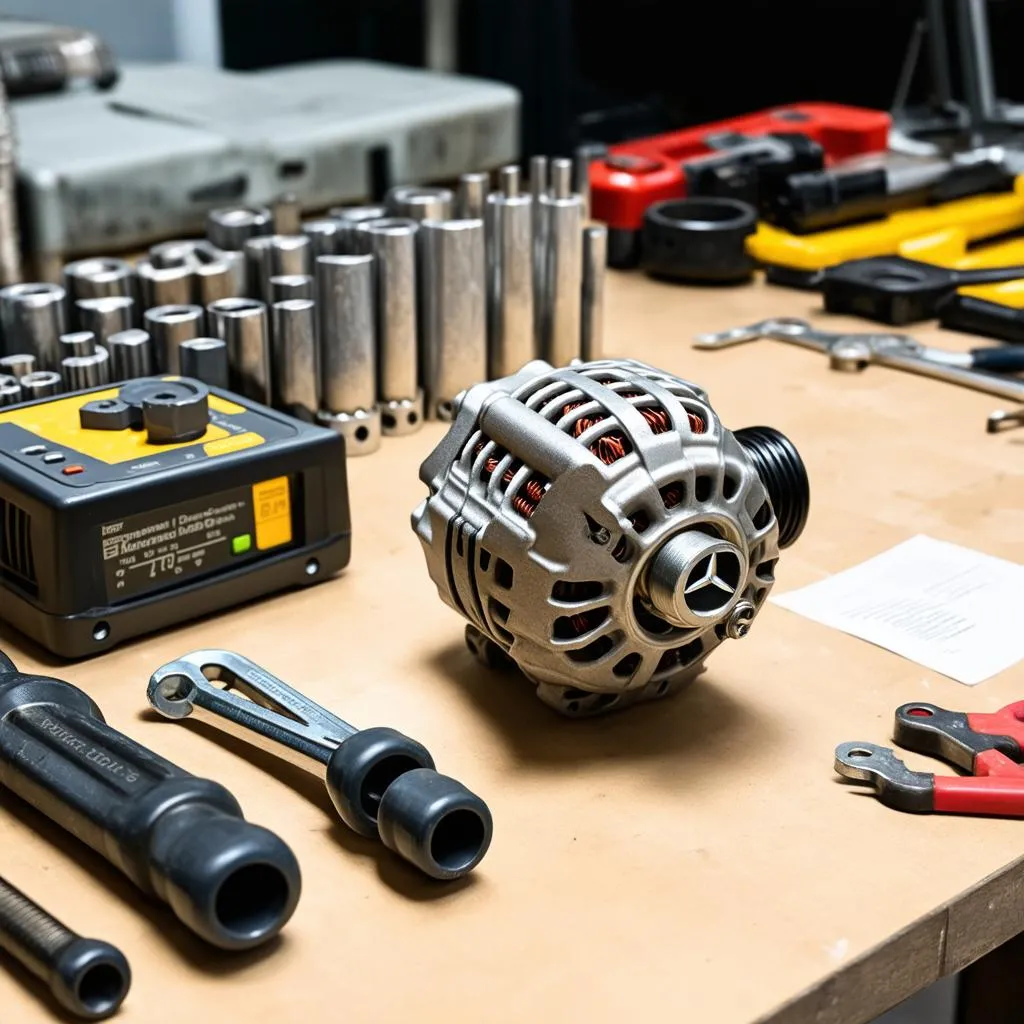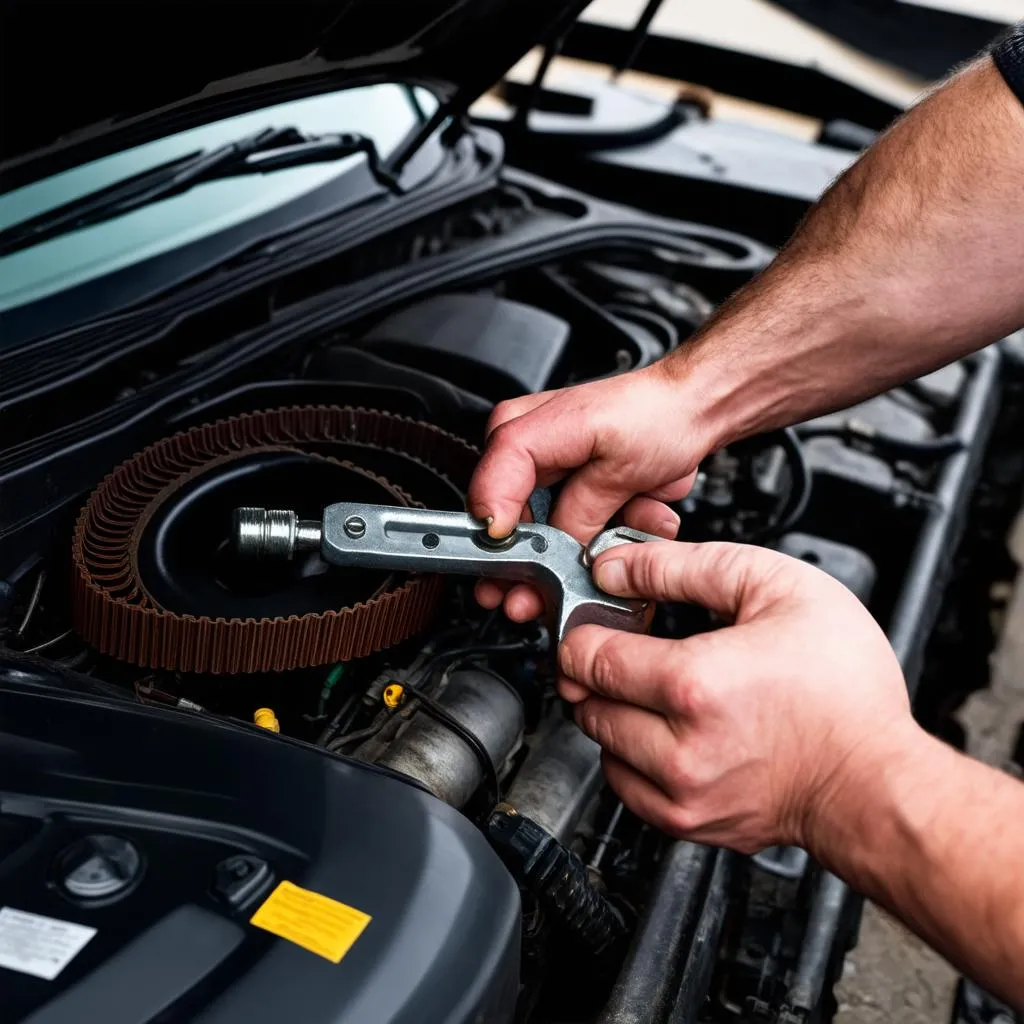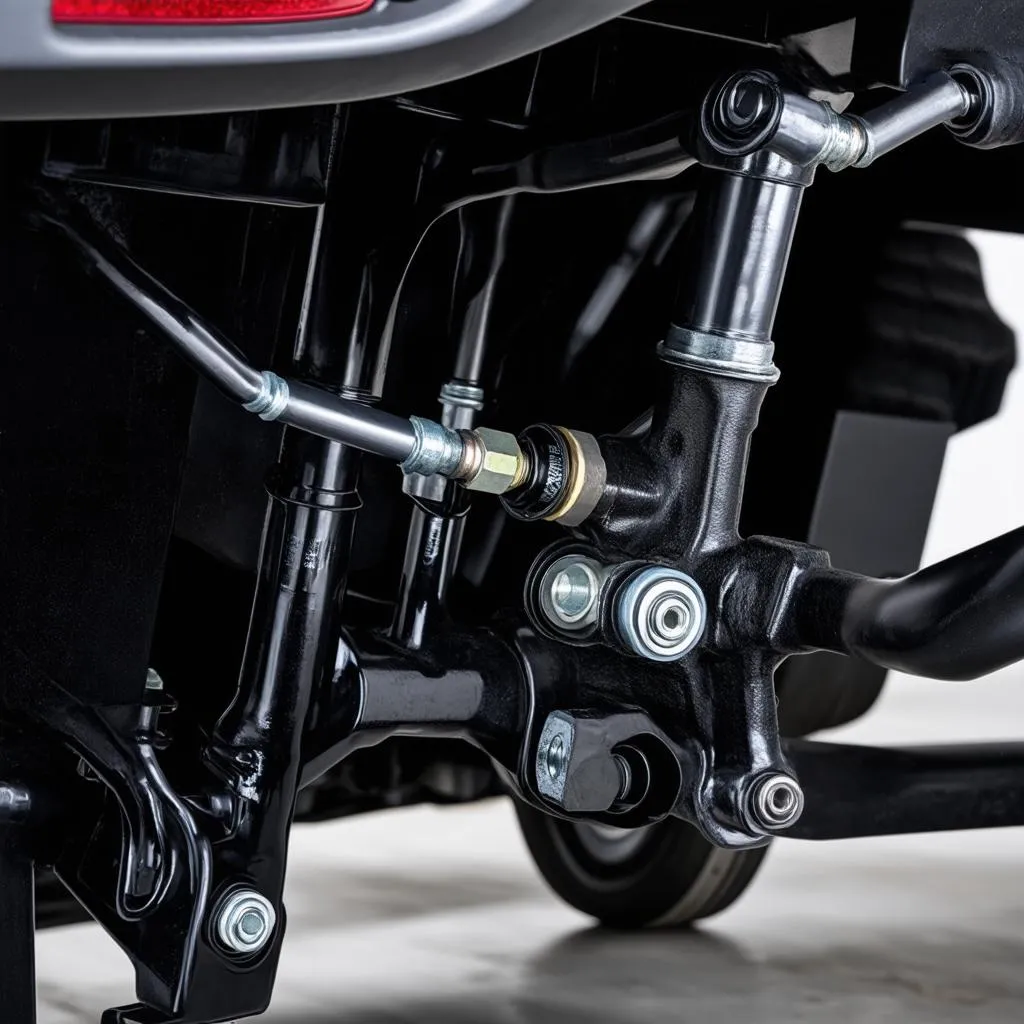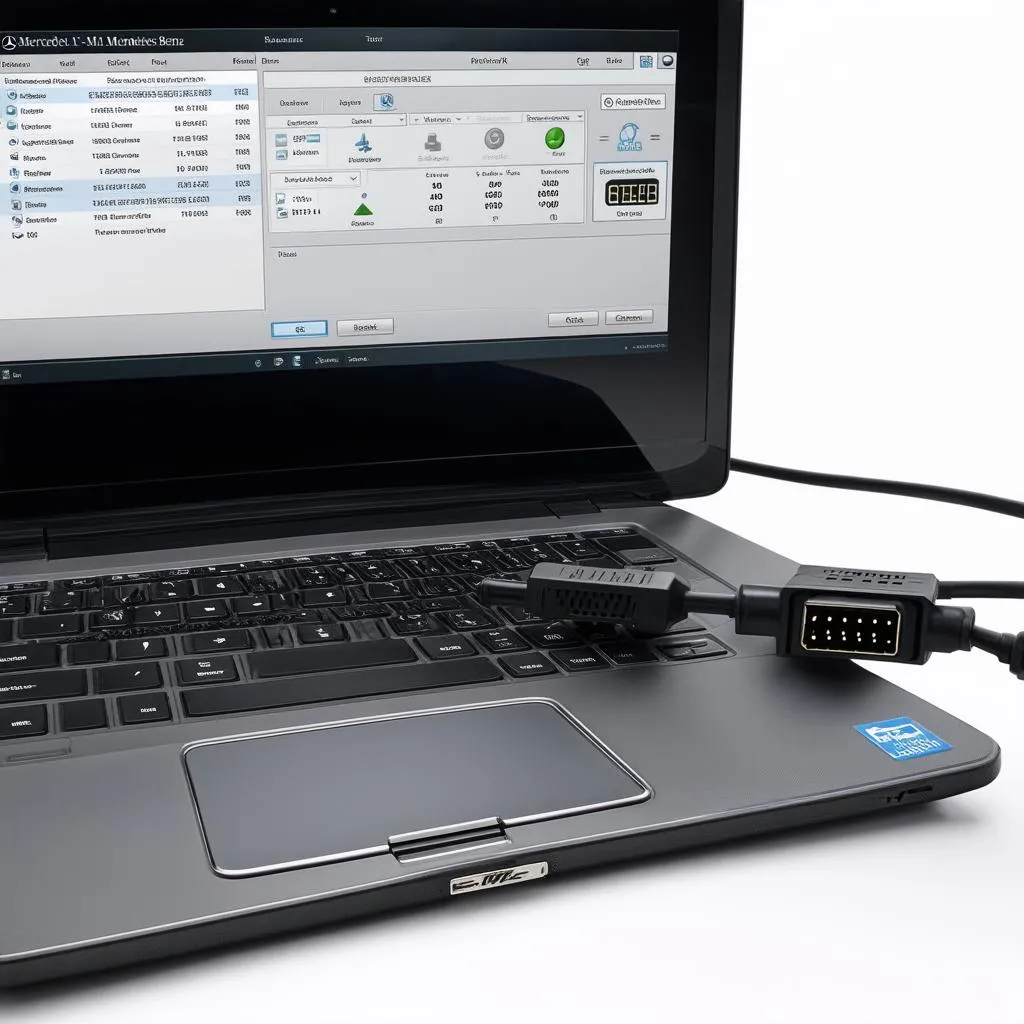Working on a Mercedes-Benz alternator? These vehicles are renowned for their performance and intricate engineering. As a result, having the right tools for alternator repair and diagnostics is crucial. This guide covers the essential tools for diagnosing and repairing your Mercedes-Benz alternator, ensuring your vehicle stays in top condition.
Understanding the Importance of Proper Tools
Using the correct tools ensures safe and efficient repairs, preventing damage to your Mercedes-Benz and potentially saving you costly mistakes in the long run. As any experienced automotive electrician will tell you, “The right tool for the job isn’t just a saying, it’s essential for preventing damage and ensuring quality repairs.” – John Miller, Author of Automotive Electrical Systems Explained.
Must-Have Tools for Mercedes-Benz Alternator Work
Here’s a breakdown of the essential tools:
1. Diagnostic Tools
- Multimeter: A multimeter is indispensable for testing battery voltage, charging system output, and identifying shorts or open circuits. Look for a high-quality digital multimeter with clear readings.
- Scan Tool: Modern Mercedes-Benz vehicles rely heavily on electronics. A dedicated scan tool compatible with your model will allow you to read and clear fault codes from the engine control unit (ECU), providing valuable insights into alternator-related issues.
2. Mechanical Tools
- Socket Set & Wrenches: Mercedes-Benz alternators are typically secured with bolts and nuts. A comprehensive socket set and wrench set in both metric and standard sizes are essential for removing and installing the alternator.
- Torx Bit Set: Many Mercedes-Benz models use Torx bolts in their alternator assemblies. Ensure your Torx bit set includes the common sizes found on your specific model.
- Belt Tensioner Tool: Mercedes-Benz often uses a serpentine belt tensioner system that requires a specific tool to release tension for belt removal and installation. Consult your vehicle’s service manual or a trusted mechanic to determine the correct tool.
- Pulley Removal & Installation Tool: Some Mercedes-Benz alternators may require specialized pulley removal and installation tools to avoid damage to the alternator shaft or pulley.
3. Safety Equipment
- Safety Glasses: Protect your eyes from flying debris while working on your alternator.
- Gloves: Protect your hands from sharp edges and hot components.
Common Mercedes-Benz Alternator Issues & Troubleshooting
- Dimming Lights: One of the earliest signs of a failing alternator is dimming headlights or dashboard lights, particularly when the engine is idling.
- Battery Warning Light: A persistent battery warning light on your dashboard is a strong indication of a charging system problem, which could be due to a faulty alternator.
- Strange Noises: Whining or grinding noises coming from the alternator can signal worn bearings or other internal problems.
FAQs about Mercedes-Benz Alternator Tools
Q: Can I use a generic OBD-II scanner for my Mercedes-Benz?
A: While a generic OBD-II scanner can read basic engine codes, it’s highly recommended to invest in a Mercedes-Benz-specific scan tool for comprehensive diagnostics and access to manufacturer-specific codes related to your alternator and charging system.
Q: How often should I replace my alternator belt?
A: It’s a good practice to have your alternator belt inspected every 60,000 miles or as recommended by your vehicle’s maintenance schedule. Replace the belt if it shows signs of cracking, fraying, or glazing.
Q: Can I test my alternator myself?
A: While some basic tests can be performed with a multimeter, it’s advisable to have your alternator inspected by a qualified mechanic, especially if you suspect a serious problem. They have the expertise and equipment to accurately diagnose and address any issues.
Need More Help?
For a deeper dive into Mercedes-Benz diagnostics and tools, visit CARDIAGTECH. You can find resources and products that can assist with your Mercedes-Benz alternator repairs.
 Mercedes-Benz Alternator Tools
Mercedes-Benz Alternator Tools
 Mercedes-Benz Alternator Replacement
Mercedes-Benz Alternator Replacement
In Conclusion
Equipping yourself with the right knowledge and tools is key to successfully diagnosing and repairing your Mercedes-Benz alternator. Remember that safety should always be your top priority. If you’re unsure about any aspect of the repair, don’t hesitate to seek assistance from a qualified mechanic.


